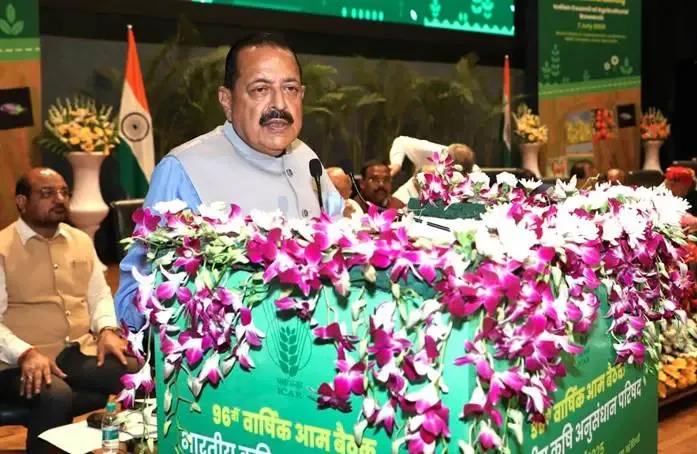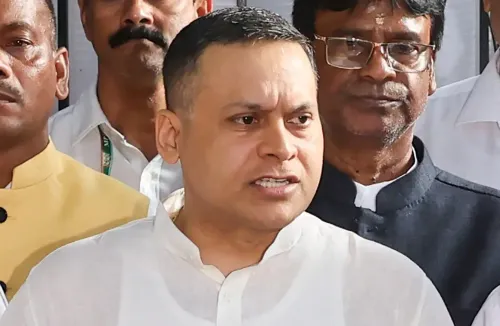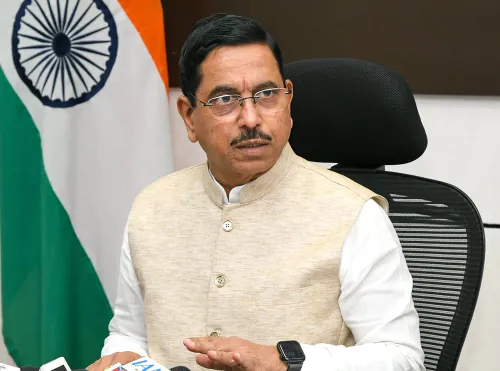Is a Paradigm Shift in Agriculture Necessary According to Dr. Jitendra Singh?

Synopsis
Key Takeaways
- Emphasis on technology: Adopting innovative technologies is crucial for agricultural advancement.
- Collaboration: Greater synergy among stakeholders is essential.
- Success stories: The Lavender Revolution showcases the potential of modern farming.
- Biotechnology: Advances in biotech are redefining agricultural practices.
- Real-time sharing: Cross-ministerial interactions can enhance innovation exchange.
New Delhi, July 7 (NationPress) Under the guidance of Prime Minister Narendra Modi, the agricultural sector has witnessed remarkable technological advancements over the last 11 years, remarked Union Minister Dr. Jitendra Singh on Monday. He called for a paradigm shift in agriculture by adopting innovative technologies and enhancing collaboration among different stakeholders.
While addressing the 96th annual general meeting of the ICAR Society at the NASC Complex in the capital, he pointed out that the full potential of these advancements remains largely untapped at the grassroots level.
During the event, which was chaired by Agriculture Minister Shri Shivraj Singh Chouhan, Dr. Singh highlighted that every global technology is now readily accessible in India.
“The question is no longer whether technology is available; it is about how quickly we can adopt and integrate it into our agricultural framework to enhance our economy,” he stated.
The minister emphasized the necessity of breaking down mental and institutional barriers, noting that many individuals involved in the agricultural value chain are not only unaware of new technologies but also unaware of their lack of awareness.
Citing success stories such as the Lavender Revolution in Jammu and Kashmir, which has led to the emergence of over 3,500 startups in lavender cultivation, Dr. Singh highlighted how modern farming techniques—utilizing satellite imagery, remote-controlled tractors, and demand-driven crop production—are transforming the agricultural landscape.
“From lavender in Bhaderwah to off-season tulips for temple offerings, we have instances where science and strategy have come together to create both income and innovation,” he remarked.
He also pointed out that advancements driven by biotechnology, such as pest-resistant cotton developed through initiatives from the Department of Biotechnology and radiation-based food preservation techniques by the Department of Atomic Energy, are redefining how produce is cultivated, stored, and exported.
“Our mangoes now reach the U.S. thanks to these technologies. However, many states have yet to fully leverage these resources,” he observed.
Dr. Singh suggested more frequent and informal cross-ministerial interactions to facilitate real-time sharing of innovations. “We should not limit ourselves to annual meetings. Let’s establish working groups that can spontaneously and practically share solutions,” he urged.









